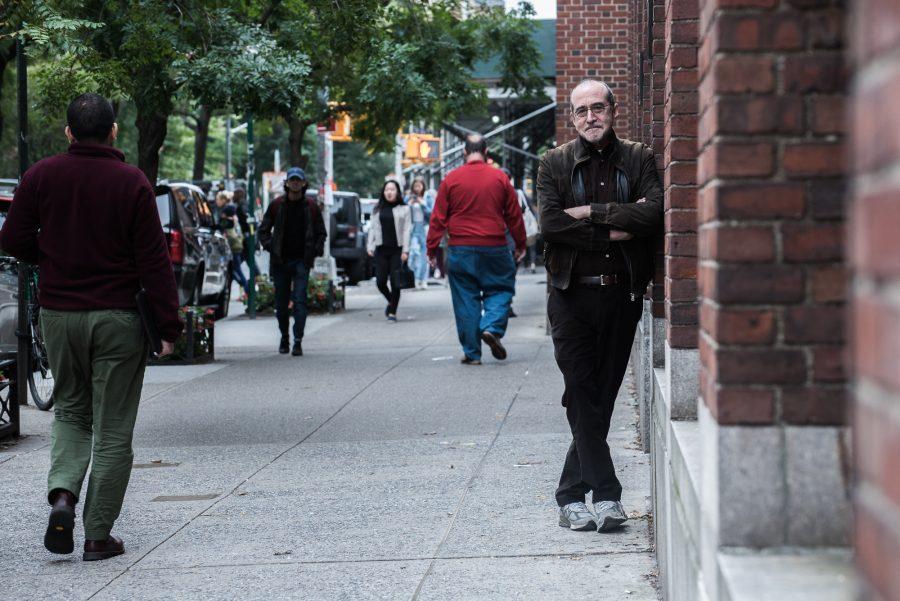Katherine Forrest could hardly have closer ties to NYU: she is an NYU Law alumna, is employed by NYU as an adjunct law professor and is now employed by a law firm chaired by an NYU trustee.
But over the summer, while serving as a district court judge, Forrest decided a high-profile case in which plaintiffs representing NYU employees with retirement plans sought a payout of over $350 million from the university. She ruled in favor of NYU.
Over the course of the past year, NYU has been embroiled in a lengthy legal battle against a number of its employees, who sued the university over allegedly mismanaging their retirement funds.
The case seemed decided in late July, when Forrest ruled that plaintiffs did not have enough evidence to prove NYU mismanaged the plans.
But plaintiffs are refusing to back down. Over the past two weeks, NYU employees and their lawyers have filed a motion to reopen the case, accusing Forrest of conflicts of interests impeding her from impartially deciding the case.
Forrest disclosed her status as an NYU employee at the outset of the trial and offered to recuse herself upon request by plaintiffs. Plaintiffs offered no objections to her involvement in the case. However, between the case’s trial in April and its conclusion in July, Forrest’s connections to the university grew far more extensive.
Forrest announced her retirement from the bench in mid-July, days before the official decision was rendered. Over the summer, she was known to have been in negotiations to join the law firm Cravath, Swaine & Moore LLP, where she once worked before becoming a district court judge. Upon stepping down from her judgeship in August, she promptly rejoined the private Manhattan firm.
Cravath, Swaine & Moore LLP is chaired by an active NYU Trustee and CAS alumnus named Evan Chesler. The NYU Board of Trustees oversees the committee currently being sued over alleged retirement plan mismanagement.
“Under the circumstances, a reasonable person informed of the facts would conclude that the trial judge’s impartiality could reasonably be questioned,” plaintiffs wrote in a statement to the law blog Law360.
Forrest did not respond to multiple phone calls and emails requesting comment. University spokesman John Beckman said NYU disagrees with the plaintiffs’ motion.
“The Schlichter firm and their clients have sought to get around the court’s findings and re-litigate the same matter,” Beckman wrote in a statement to WSN. “Why? Not because this was an incorrect or unjust outcome, but because they continue to hope for a payday.”
The retirement case itself is weedy and not easily comprehensible by those not well versed in tax law. In August, Forrest found the university not guilty of violating two separate 403(b) retirement plans. The plan is specifically designed for tax-exempt organizations or universities like NYU, allowing employees to set aside and invest portions of their salary to save for retirement. All funds set aside in these plans are not subject to taxation, making them especially appealing to employee beneficiaries. At the end of an employee’s tenure at NYU, they can withdraw the money from the plan.
Plaintiffs also argued that the Employee Retirement Income Security Act was violated. The act mandates transparency and requires employers to communicate how their employees’ funds are moved and managed.
Plaintiffs, including Silver School of Social Work Professor Lala Straussner, feel that Forrest’s connections to the university offer enough of a reason for the case to be reopened.
“All six of us, who were the named plaintiffs in this case, have one set of lawyers who are asking that the verdict by a judge, who appears to have had a conflict of interest, be vacated and a new trial be allowed,” Straussner said.
NYU is not the first major university to wrestle with allegations over retirement plan mismanagement. Other prestigious universities in the United States, such as Yale University, Columbia University, Massachusetts Institute of Technology, Princeton University, the University of Chicago and Georgetown University, have all faced similar lawsuits.
NYU believes Forrest’s original decision was fair and does not believe plaintiffs are justified in asking the case to be reopened.
“There was a two-week trial in federal court during which they presented all their evidence,” Beckman said. “And at the end of that trial, the court ruled against them and for NYU, finding that NYU was, in fact, a careful steward of its employees’ retirement funds.”
Currently, the plaintiff’s motion has been paused by the United States Court of Appeals for the Second Circuit. The recent motion alleging conflicts of interest is pending review by local judicial officials.
Update: This article was updated on Oct. 15 to include information that Judge Katherine Forrest disclosed her NYU employment at the outset of the April 2018 retirement plan trial.
Correction: A previous version of this article inaccurately stated that NYU Trustee Evan Chesler once helped lead NYU’s Retirement Plan Committee. The Board of Trustees oversees but does not actively lead this committee.
A version of this article appeared in the Monday, Oct. 15 print edition. Email Jared Peraglia at [email protected].


























































































































































